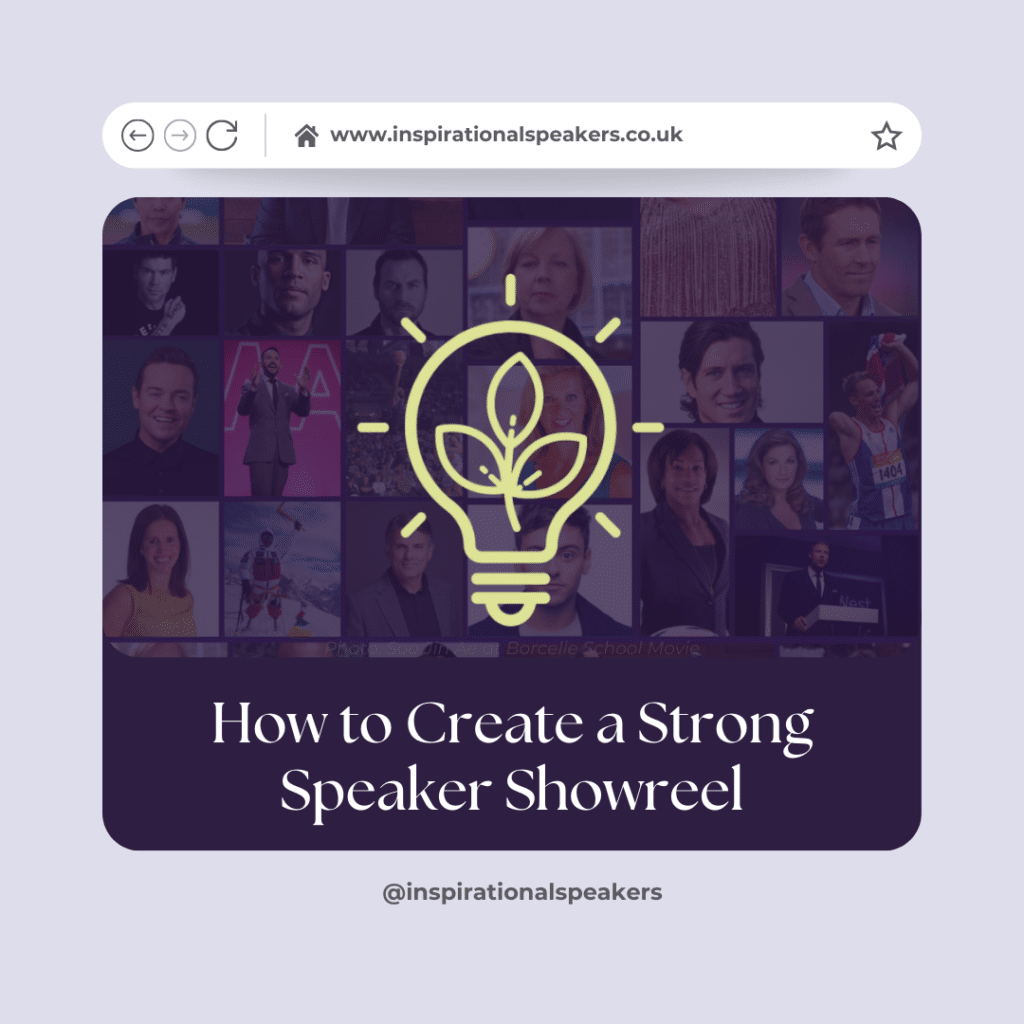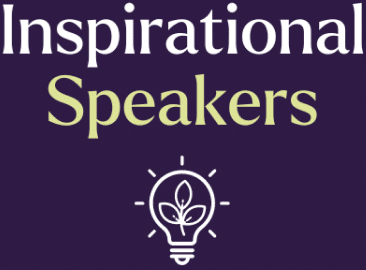Conversations That Could Save Lives: Breaking Mental Health Stigma in Our Communities – by Frederika Roberts
At Inspirational Speakers, we are proud to represent speakers who don’t just inspire – they lead with heart, purpose and action.
As we approach Mental Health Awareness Week, we’re shining a light on the brilliant Frederika Roberts, a passionate advocate for positive psychology, organisational change and creating mentally healthy workplace cultures.
In her latest blog post, “Conversations That Could Save Lives: Breaking Mental Health Stigma in Our Communities”, Frederika explores the power of honest conversations, the role of community, and the small yet vital steps we can all take to support mental wellbeing – at home, at work, and beyond.
12th-18th May 2025 is Mental Health Awareness Week and this year’s theme is “Community”. Strong connections with a supportive community are essential for our physical and mental health, as evidenced by the longest study on happiness: When we nurture the quality of our relationships, we live longer, happier and healthier lives.
Together, we can ensure that mental health is de-stigmatised and supported in our communities (family, friendship groups, workplaces, local neighbourhoods, activity groups – anywhere that groups together people is a community!). It all starts with open and courageous conversations.
In a Nutshell
- Having open and honest conversations can save lives – having them early can prevent crisis and help someone thrive!
- There are many reasons we avoid mental health conversations – which is why you’re showing courage by looking for ways to approach them.
- Jump straight to “How to have mental health conversations” in the post for practical tips you can use today.
- Even when someone reaches crisis point, there is always hope. Read the full post to find out what happened with Han, my 25-year-old daughter.
- I’m donating 50% of my fee for my keynote and workshop “What I wish I’d known sooner: Removing the fear and stigma from mental health conversations” . If you’d like to book me, please get in touch with Victoria, Claire or Chelsea (click “Book Now” on my profile page or call +44 20 7993 2724)😊
The conversations I wish I’d had sooner: Han’s story
On 26th September 2024, my youngest daughter Han was detained under Section 2 of the Mental Health Act and was eventually held in a psychiatric ward for two weeks under this section. With the benefit of hindsight, there were so many warning signs over the years: From the times she seemed persistently withdrawn and angry as a teenager, to the more obvious times when I’d get calls to say she was in A&E due to having expressed suicidal plans (or gone beyond plans and taken action).
I wish I hadn’t shied away from asking more direct questions. Because I didn’t ask the awkward questions, I didn’t realise there was a serious problem until Han had reached crisis point. I’d had an inkling, a niggle, but nothing specific I could put my finger on. And even after the first time she attempted to end her life, I was worried about upsetting Han, about making it difficult and uncomfortable for her (and me!), about her shutting down and not telling me or anyone else anything about her struggles, so I backed off when Han didn’t want to talk.
Of course, we can’t force people to talk about their mental health, but somewhere between not talking at all and pushing too much is that all-important communication sweet spot that can, and does, save lives.
From that initial devastating moment when Han was sectioned, through six months of emotional hell, we are now seeing light at the end of the tunnel. It took five weeks of intensive therapy in a private mental health rehab centre, and of course the work doesn’t end there. Mental Health, just like physical health, requires effort to maintain (but that’s the topic for another post!).
Why are we so scared to talk about Mental Health?
In the UK, we tend to put on a “brave face” (especially 16-34 year olds), so when someone asks us how we are, we tend to say we’re “fine”, even when we’re anything but!
Yet, even when we have that little niggle that something isn’t quite right, we often still shy away from those all-important conversations. Why?
Maybe we think that the person will perceive our questions as a negative judgement. Or we may worry that we’re being too intrusive. We might worry we’ll say the wrong thing and upset someone. Maybe we’re embarrassed, or we feel we don’t know the person well enough, or that we’re not the person they’ll want to open up to (parent, boss, neighbour …).
Perhaps we’re worried we’ll make things worse – will we put the idea of suicide in someone’s head by asking them whether they’re planning to end their life? Based on extensive data, suicide prevention resources state that it’s highly unlikely that asking about suicidal thoughts makes anyone more likely to attempt to end their life.
If you are concerned that someone in your community may be suicidal, every mental health charity has easily accessible information to help. Rethink Mental Illness has excellent and clear information page.
But let’s remember that we can help someone with their mental health before they are in crisis. By having conversations about mental health, we can help someone lead a more fulfilling, happy and thriving life.
How to start mental health conversations
- Notice the (sometimes very subtle) clues that something isn’t quite right (that “I’m ok” that doesn’t sound quite ok, behaviour and mood changes, signs that someone is withdrawing from their community, etc – check out signs you can look out for here, from The Samaritans)
- Pick a suitable time and place to start a conversation. It can be helpful to arrange to go for a coffee, or to start a conversation while you’re cooking dinner, or while out for a walk. It’s easier to open up when you are not face to face and the setting is relaxed.
- Listen without judgement. Show empathy and clarify with follow-up questions or confirming statements.
- Don’t jump to solutions. Sometimes all someone needs is to be heard, or to talk through a problem work out solutions themselves. Give them the time and space to do that.
- Offer practical help and support, beyond “You know where I am if you need anything”. Signpost them to information, offer to go with them to seek any support they need, agree a time to talk again.
- Follow-up on anything you’ve agreed to do, and keep having the conversation. You may need to create multiple opportunities for a person to open up. Don’t be pushy, but be persistent if you are concerned.
Remain hopeful: Things can get better!
I don’t know what the future holds for Han, and we’re still working on that open communication. She is an adult that needs the space and privacy to lead her own life, and I need to be able to breathe and relax, knowing that she’ll be honest when I ask how she is. It’s a work in progress, supported by therapy and lots of tools and habits Han has now put in place to support her continued recovery and her journey towards a flourishing life.
Many of those tools are the building blocks of wellbeing that I talk and write about, based on Positive Psychology research and therapeutic practices. Han now practises journalling, gratitude and mindfulness. She spends time on complex jigsaw puzzles (and has got me addicted, too!), she makes time to go for walks in nature. She has joined communities beyond her workplace: choir and a gym close to home.
Support, as early as possible, is essential if you are struggling with your mental health. To get that support, we need to have open, honest and courageous conversations about mental health. These can and do make a difference and they can save lives!#
We are all part of one or more communities. We are not alone. We can be that difference someone needs.
Let’s remove the stigma and change the conversation, together!
I’m donating 50% of my fee for my keynote and workshop “What I wish I’d known sooner: Removing the fear and stigma from mental health conversations” to Mind. If you’d like to book me, please get in touch with Victoria, Claire or Chelsea (click “Book Now” on my profile page or call +44 20 7993 2724)😊
Mind is the mental health charity that gave me invaluable practical support when I had to navigate the complex legal situation when Han was sectioned. They also helped me have important conversations with Han about how I and others could support her, as I could signpost her to clear information on their website. You can verify that I have registered to make these donations by visiting my page on the Work for Good website.
Let’s de-stigmatise mental health and get more people the support they need. It all starts with a conversation.
Frederika Roberts is an expert in Positive Psychology and Organisational Change and Workplace Culture Improvement.
Frederika is the author of “Recipe for Happiness” (2013) and “For Flourishing’s Sake” (2020), co-author of “Character Toolkit for Teachers” (2018) and “Character Toolkit Strength Cards” (2020), and co-editor of “The Big Book of Whole School Wellbeing” (2022).
Past Blog Posts






